In partnership with the Secretariat of Agriculture and Supply of São Paulo, IBGE releases data on Municipal Agricultural Production in São Paulo (SP)
September 13, 2024 10h00 AM | Last Updated: September 19, 2024 04h01 PM
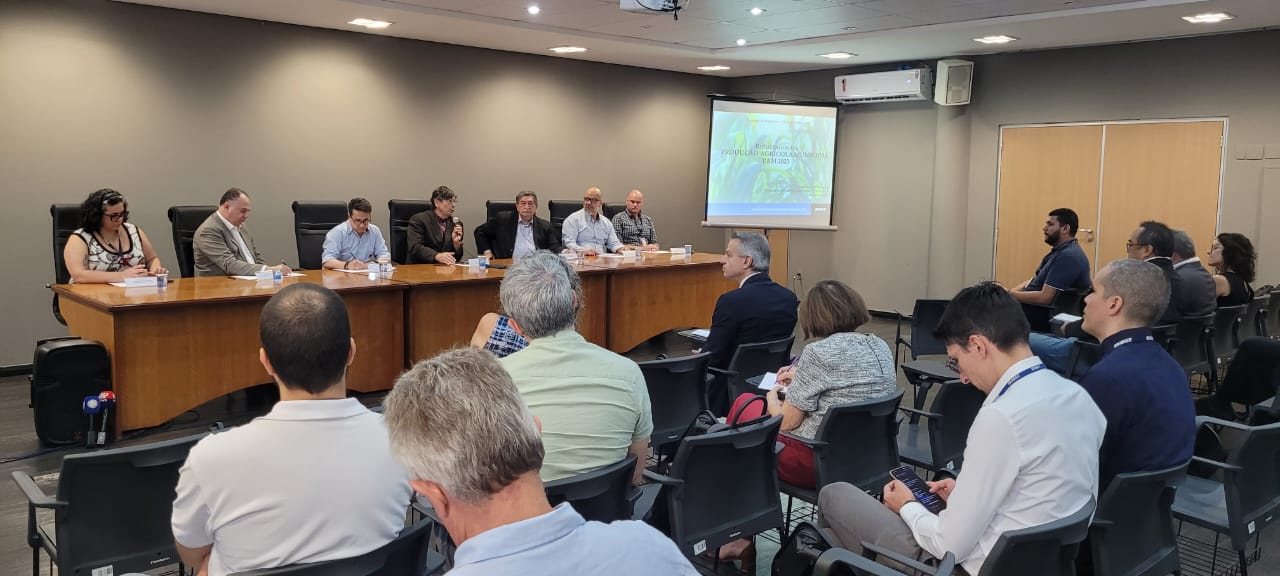
The Brazilian Institute of Geography and Statistics (IBGE) released the Municipal Agricultural Production (PAM) on Thursday, the 7th, at the auditorium of the Secretariat of Agriculture and Supply of the State of São Paulo (SAA-SP), located in the Historic Center of São Paulo (SP). Held in partnership with SAA-SP, the event was attended by IBGE civil servants, national authorities and members of organizations associated with the agricultural sector, and was streamed on Digital IBGE and the social media channels of the Institute.
Representing the IBGE were the president, Marcio Pochmann, the agronomist and national supervisor of PAM, Winicius Wagner, and Bianca Schmid, supervisor of Agriculture of the Superintendency of São Paulo, presenting the national and regional results of the survey. Representing the Secretariat were the undersecretaries of Agriculture and Supply, Orlando Melo de Castro and Diógenes Kassaoka, respectively, the coordinator of the São Paulo Agency of Agribusiness Technologies (APTA), Carlos Nabil Ghobril, and the director of the Institute of Agricultural Economics (IEA-Apta), Felipe Camargo.
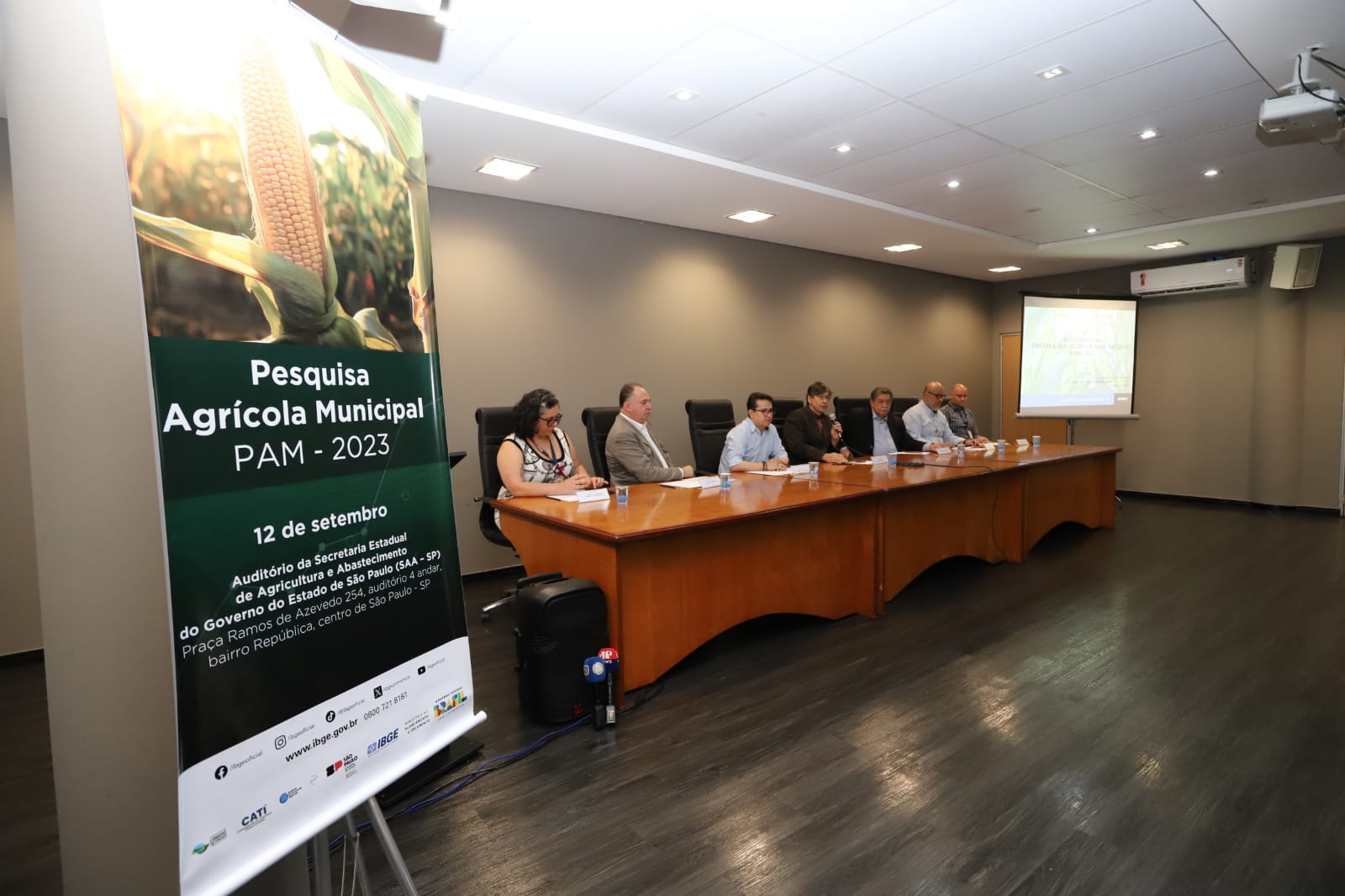
The president of the IBGE began his speech by stating that the event reflects “a growing concern within the Institute, which is to disseminate information to those who must make decisions, in this case, public administrators and businesspeople. In this phase of the Digital Era, data is crucial for those who must make decisions. Disseminating information is a challenge that demands valuing the institutions that produce data.”
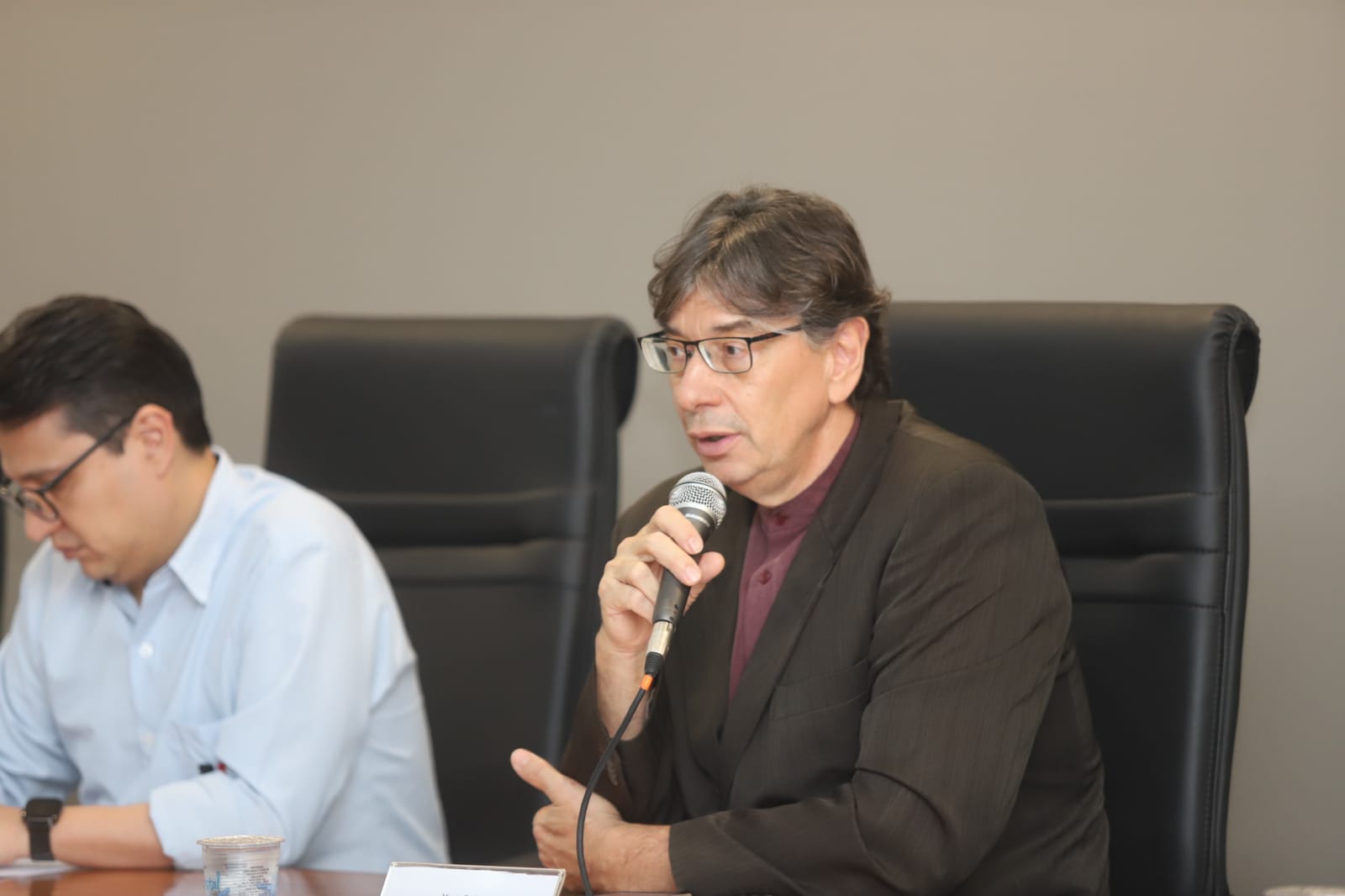
Mr. Pochmann also explained that “the IBGE is the country’s postcard, since it reveals its reality, as our mission states, but the Institute is also a kind of compass, showing which direction the country is heading. This information is of a technical nature, for society to interpret.”
The Undersecretary of Agriculture of the State of São Paulo, Orlando Melo de Castro, emphasized that “statistics play the role of showing the role of producers, what is happening and where it occurs. We will work to join forces to obtain this information and guide its appropriate use, which is what the survey institutes are for. Even more important is to disseminate this type of information to different audiences.”
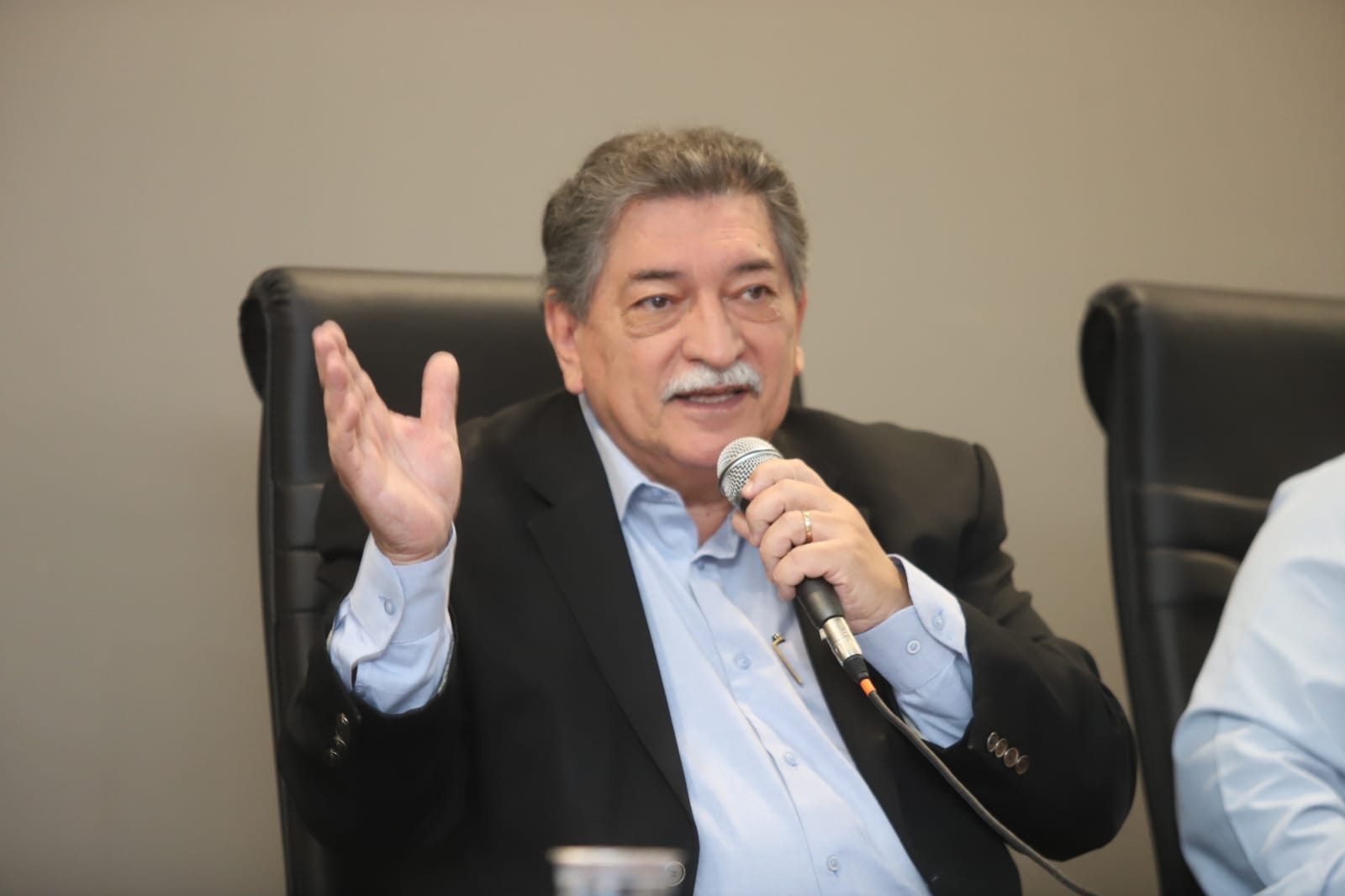
Diógenes Kassaoka, Undersecretary of Supply and Food Security of the State of São Paulo, highlighted that “it is very good to welcome the IBGE here and to join this institute, which helps us establish concrete public policies, analyzing real numbers and, thus, performing more concrete and assertive work”.

Felipe Pires Camargo, director of the Institute of Agricultural Economics (IEA-Apta), explained that “the production of systematized information related to agriculture increasinglyhas become more and more important in the context of climate change and the complexity of agricultural dynamics. This survey released by the IBGE plays a fundamental role in the production of information, contributing to the planning of agricultural activity and the alignment of public policies that are fundamental to the development of the sector.”
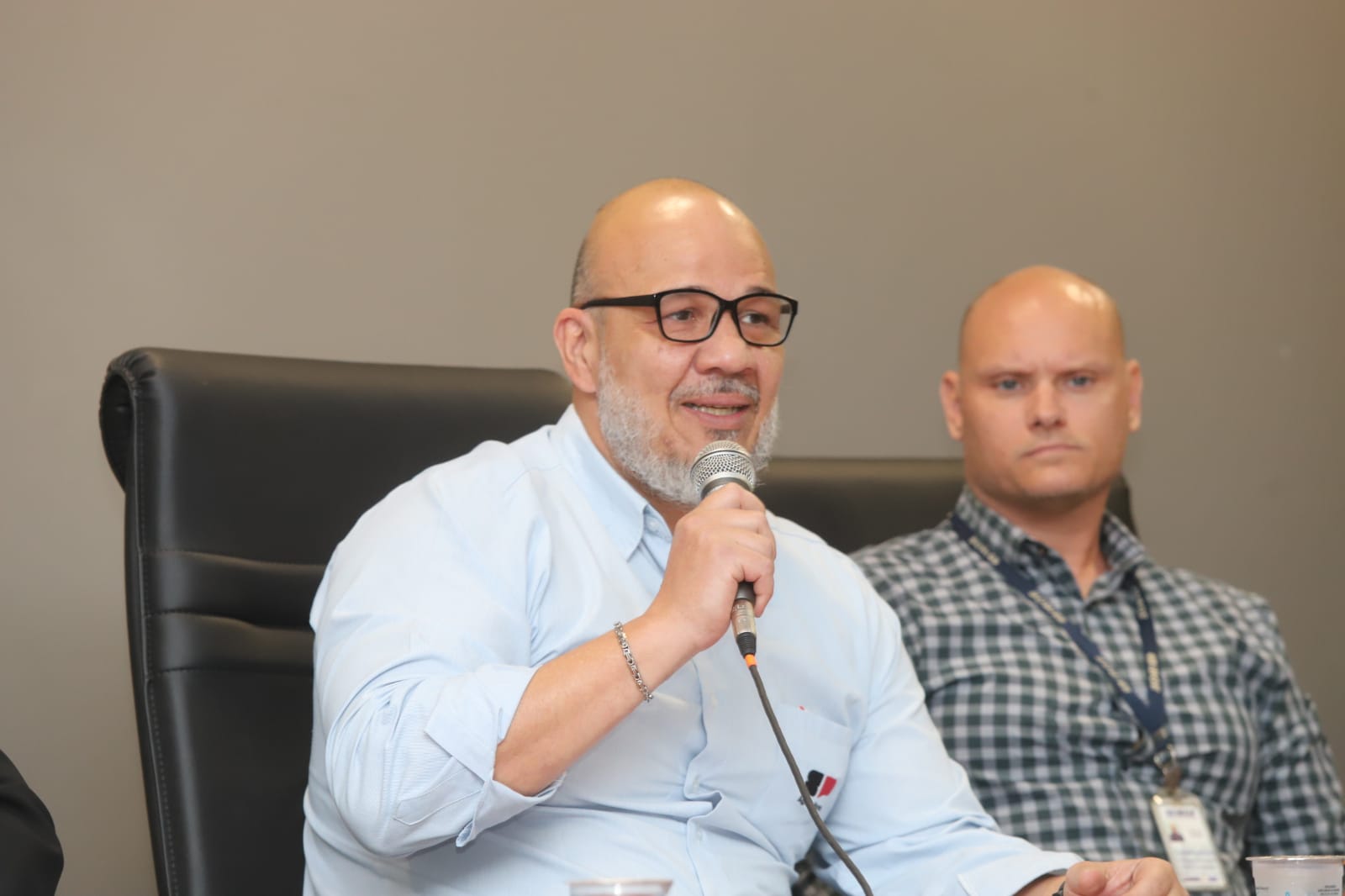
Coordinator of the São Paulo Agency for Agribusiness Technologies (APTA), Carlos Nabil Ghobril, defined the IBGE as “an institution with enviable credibility, largely due to the quality of the work developed over the years, democratizing information and reducing the asymmetries of economic agents”.
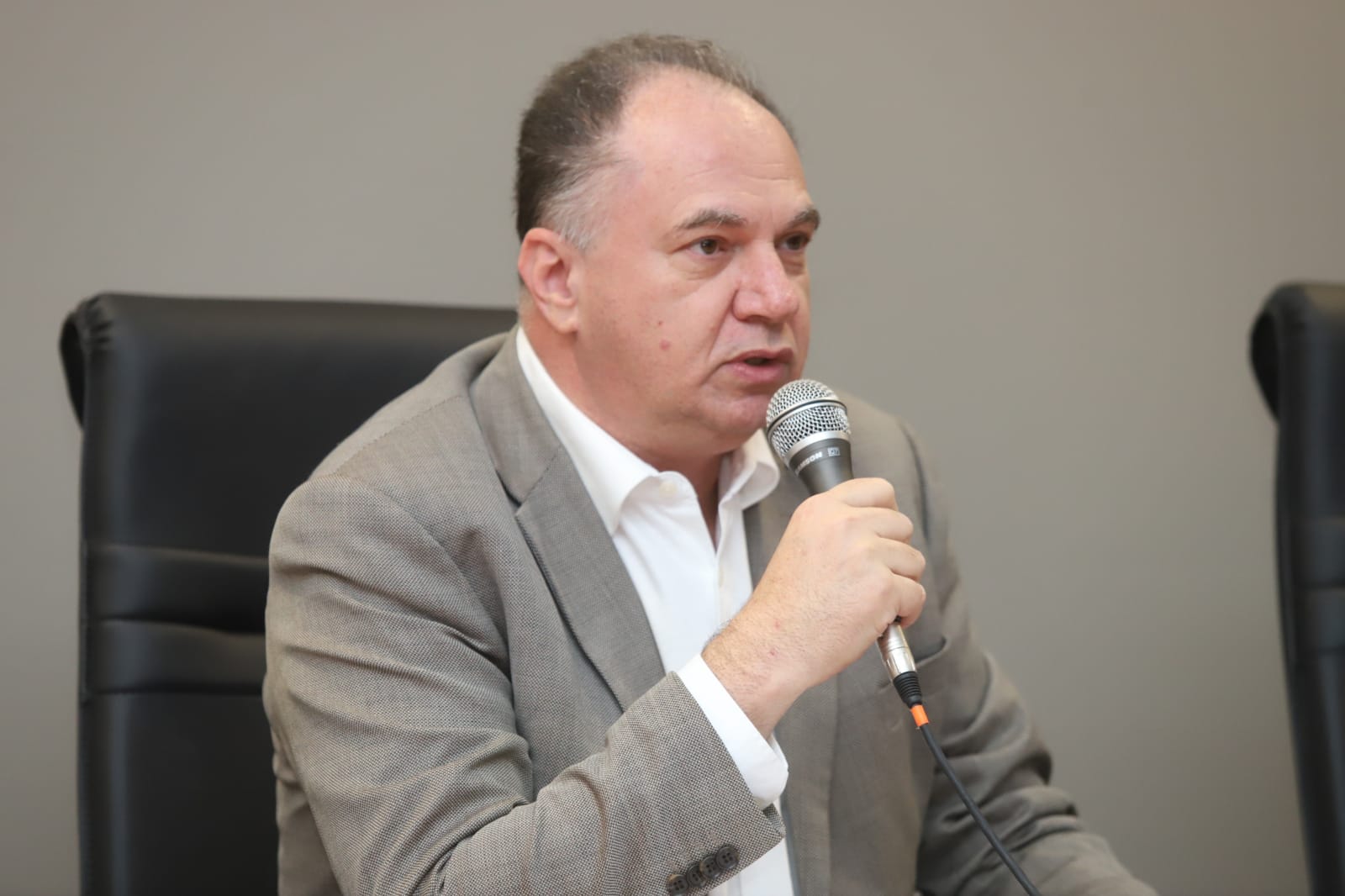
Municipal Agricultural Production Data
Winicius Wagner, PAM supervisor, highlighted some points of the survey, such as the recovery in productivity with a record grain crops and the high supply and falling prices. “After the water shortage in 2022 affected crop performance that year, especially grain production, in 2023 we noticed that rainfall was better distributed throughout the period, from planting to harvest. This led to a recovery in the productivity of these crops, which directly impacted the increase in production in the year”, explained Mr. Wagner.

Another point that Mr. Wagner highlighted was the increase in crop productivity and the expansion of production areas. The 132.0 million tonnes harvested represented a 20.2% increase compared to the volume obtained in the previous year, even with some losses caused by the drought that hit the Center-South of the country during the summer months. “For yet another year, producers invested in expanding cultivation areas in the 2nd crop, following the main summer crops, most notably soybeans, resulting in an increase in the total area harvested in Brazil,” said the supervisor.
Wagner also classified the states with the highest agricultural production values in 2023. “Even with a 12.2% drop, the state of Mato Grosso ranked first, with R$153 billion, followed by São Paulo, with R$112 billion, and Paraná, with R$90 billion,” reported Mr. Wagner. Among the municipalities, Sorriso (MT) ranked first, with an estimated production value of R$8.3 billion, followed by São Desidério (BA), with R$7.8 billion, and Sapezal (MT), with R$7.5 billion.
Focusing on the state of São Paulo, host of the PAM event, Winicius Wagner ranked the municipalities in the state with the highest production value, in reais. “In first place, we highlight Itupeva, with R$2.2 billion, followed by Santa Cruz do Rio Pardo, with R$1.4 billion, and Casa Branca, in third place, with R$1.3 billion. Counting the 64 products in the survey, São Paulo leads in 13 of them, illustrating that it is a state with considerable agricultural diversity”, highlighted Mr. Wagner.
In grain production, the state of São Paulo ranks eighth with a 5.3% increase in quantity, reaching 11.2 million grains in 2023. “The first position goes to the state of Mato Grosso, with almost 100 million grains, followed by Paraná and Goiás. One trend we noticed is that even with the increase in quantity, the production value fell in most states,” highlighted the PAM supervisor.
The PAM supervisor also pointed out some production records, such as soybeans, sugarcane, corn and cotton, which recorded production records in the time series and, together with coffee, were the top five products in the production value ranking. “The record grain crop can be justified, in addition to the recovery in productivity, by the continued pace of expansion of cultivated areas, since over the years the areas have been expanding at an average of approximately 4% to 5% per year, which was no different in 2023”, explained Mr. Wagner.
Next, the Agricultural Supervisor of the SP Superintendency, Bianca Schmid, presented to the audience more details related to the state of São Paulo. “The region above the Vale do Ribeira, in cities such as Itapeva and Itapetininga, is where grain production is concentrated. We have observed that São Paulo is replacing corn first-crop with soybeans, a trend that has been happening for some years. In cities such as Itapeva and Capão Bonito, there is a very large investment in wheat”, highlighted Ms. Schmid.
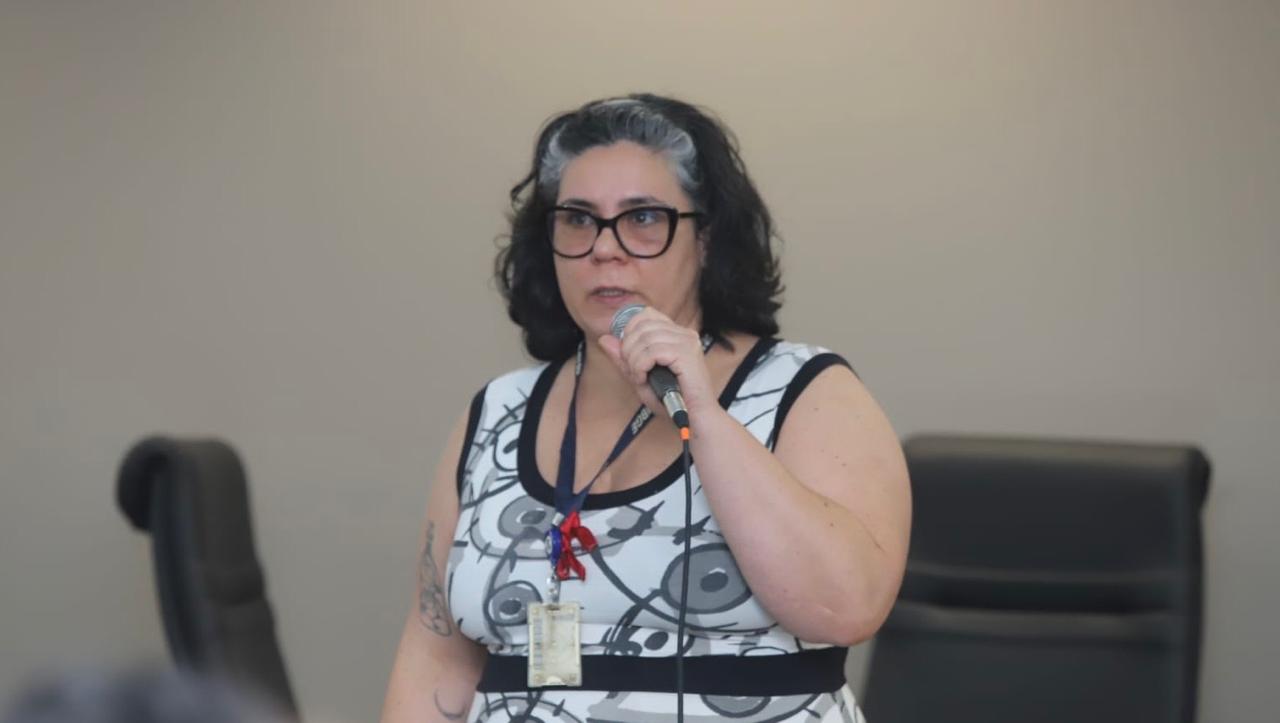
When analyzing sugarcane in São Paulo, the SES/SP Agricultural Supervisor cited some data from the state. “It was an exceptional production for São Paulo, being the leader in the national ranking, achieving a growth of 12% in production value and 4.4% in quantity, reaching 439.1 million tonnes. The main city in this regard was Barretos, with a production value of R$439.1 million,” explained Ms. Schmid.
The technician also cited the municipalities with the largest coffee production in the state of São Paulo, with emphasis on Franca, Mococa and Pedregulho. “São Paulo is the third largest coffee producer in the country, with a production of 307.4 million tonnes, an increase of 4.8%, although the production value fell 2.7% and reached R$4.6 billion,” said Ms. Schmid.




















